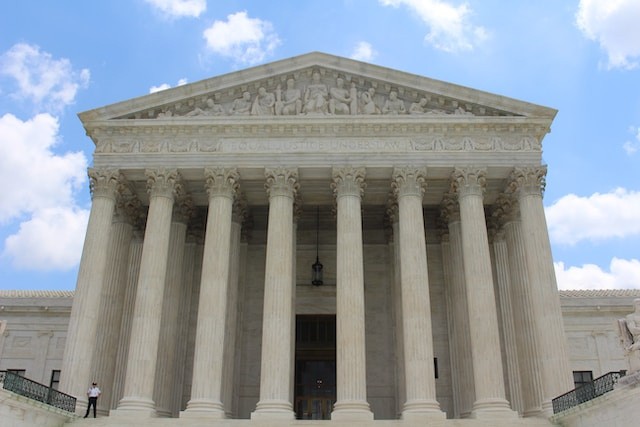This week, the U.S. Supreme Court will undertake pivotal cases that could roll back considerable federal administrative power. Cases under review could bring significant changes to consumer and environmental protections.

Chevron Deference, The Heart of the Dispute
Central to these landmark cases is the legal doctrine known as Chevron deference. Courts apply this precedent when a law can be read in several ways, deferring to federal agencies' interpretation. The possible undoing of Chevron deference would weaken presidential administrations' scope to issue climate change and pollution mitigation regulations. It would also affect rules on consumer protection unless Congress provides clearer authorizations.
A Blow to the Administrative State
Such a detonation of administrative regulation aligns with anti-regulatory groups fervently backed by conservative justices who have recently voiced skepticism towards Chevron. These forthcoming cases form part of many significant disputes at the Supreme Court this term, impacting the administrative state.
The senior strategic director for the NRDC (Natural Resources Defense Council) climate and clean energy program, David Doniger, articulates, "This is a campaign to weaken the government's ability to protect you from modern dangers to your health, and financial security."
Decoding the Chevron Deference
The Chevron deference, born from a precedent that NRDC argued, dates back nearly 40 years to the Reagan administration. It has allowed federal agencies to make regulations when laws established by Congress remain ambiguous.
Will Chevron Standard be Overturned?
The Supreme Court will hear disputes from two cases this week, challenging the same fishery rule. It has become the most promising catalyst for overturning Chevron. Justice Neil Gorsuch, Justice Clarence Thomas, and Justice Brett Kavanaugh are among those who question the future of the Chevron standard.
The Expertise Argument
Supporters of the Chevron deference argue that federal agencies filled with experts should make the call when the law is murky. Critics, however, argue that this hand's extensive power to the executive branch threatens the principle of separation of powers.
Research fellow at the Institute of Cato, Thomas Berry, emphasizes: "A judge's task is to interpret the law faithfully."
ALSO READ: US Lawmakers Establish Bipartisan AI Working Group, Aiming to Balance Innovation and Regulation
Impact of Overturning Chevron
If the Supreme Court overturns Chevron, Michael Burger, executive director of Columbia University's Sabin Center for Climate Change Law, warns that "agencies will be less willing to experiment with regulation and address emerging problems."
The implications of this judicial review extend beyond the Biden administration. Federal regulations, whether from Democratic or Republican funnels, would be subject to the same degree of deference.
The Future Landscape and Legal Support
As the doctrine stands on its last legs, according to John Vecchione, senior litigation counsel for the New Civil Liberties Alliance (NCLA), the repercussions will be pivotal for all players on the legal landscape. Given this dynamic situation, securing legal assistance from experienced attorneys is even more crucial.
Regardless of the court's decision, this week's hearings will significantly shape the future of federal regulation and the general legal landscape. Expert legal counsel and guidance will be critical in navigating what appears to be the impending transformation of administrative law and its anticipated impacts.




